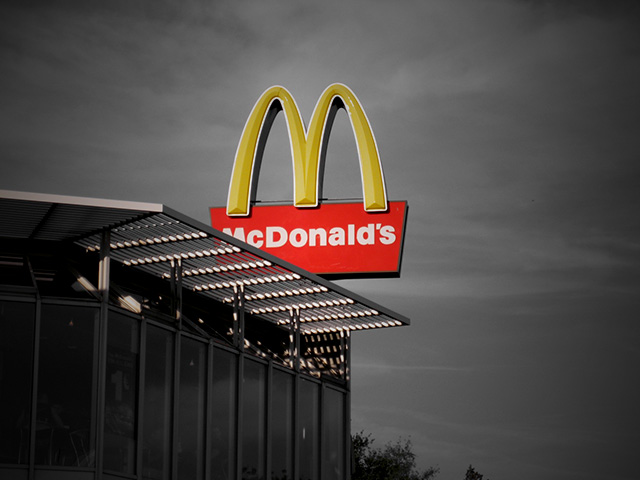
A federal judge in California allowed class action wage theft litigation to proceed against McDonald’s, on the grounds that a jury could find it guilty of negligence.
Judge Richard Seeborg said Tuesday that the lawsuit against the corporation may continue under the “ostensible agency theory.”
The doctrine holds an actor responsible for the fault of another, if victims reasonably believe that the perpetrator committed wrongdoing in the employ of said actor.
The case involves McDonald’s franchise co-owners, Bobby and Carol Haynes, who operate eight restaurants in Northern California. Leading the class are three women who work in one of their Oakland restaurants: Guadalupe Salazar, Judith Zarate, and Genoveva Lopez.
“Looking at the record, there is considerable evidence, albeit subject to dispute, that McDonalds caused plaintiffs reasonably to believe Haynes was acting as its agent,” Seeborg ruled.
“[P]laintiffs submit they sought employment at McDonalds because it ‘is a large corporation with many stores around the world,’ ‘would involve a steady job in a safe environment,’ and ‘would make sure [they were] paid and treated correctly, because it is a large corporation with standardized systems,'” he also said.
Seeborg also noted that the plaintiffs “believed both they and Haynes worked for McDonalds” (emphasis his).
Retail corporations have absolved themselves of much legal responsibility for working conditions they heavily influence by arguing that they are not “joint employers.” They simply oversee a system of franchises and contractors, without directly impacting terms of employment, their lawyers often successfully argue.
Seeborg did say that his ruling came down to a “close call” and dismissed some of the workers’ claims, but one of their attorneys was pleased with the decision, regardless.
“If plaintiffs prevail on our ostensible agency theory at trial, we will have no need to appeal the ruling on our other liability theories,” Michael Rubin told Courthouse News. “And if we do not prevail at trial on ostensible agency, we have very strong grounds for appeal given the many disputed issues of fact that we believe are material to McDonald’s ‘joint employer’ status.”
Rubin is representing McDonalds workers in six class action wage theft lawsuits that were filed in 2014.
Another one of those cases, Ochoa v. McDonalds, is set to go to the trial phase in December, as Courthouse News noted. The case is also being argued in Northern California. It was also permitted under the ostensible agency doctrine.
Our most important fundraising appeal of the year
December is the most critical time of year for Truthout, because our nonprofit news is funded almost entirely by individual donations from readers like you. So before you navigate away, we ask that you take just a second to support Truthout with a tax-deductible donation.
This year is a little different. We are up against a far-reaching, wide-scale attack on press freedom coming from the Trump administration. 2025 was a year of frightening censorship, news industry corporate consolidation, and worsening financial conditions for progressive nonprofits across the board.
We can only resist Trump’s agenda by cultivating a strong base of support. The right-wing mediasphere is funded comfortably by billionaire owners and venture capitalist philanthropists. At Truthout, we have you.
We’ve set an ambitious target for our year-end campaign — a goal of $250,000 to keep up our fight against authoritarianism in 2026. Please take a meaningful action in this fight: make a one-time or monthly donation to Truthout before December 31. If you have the means, please dig deep.